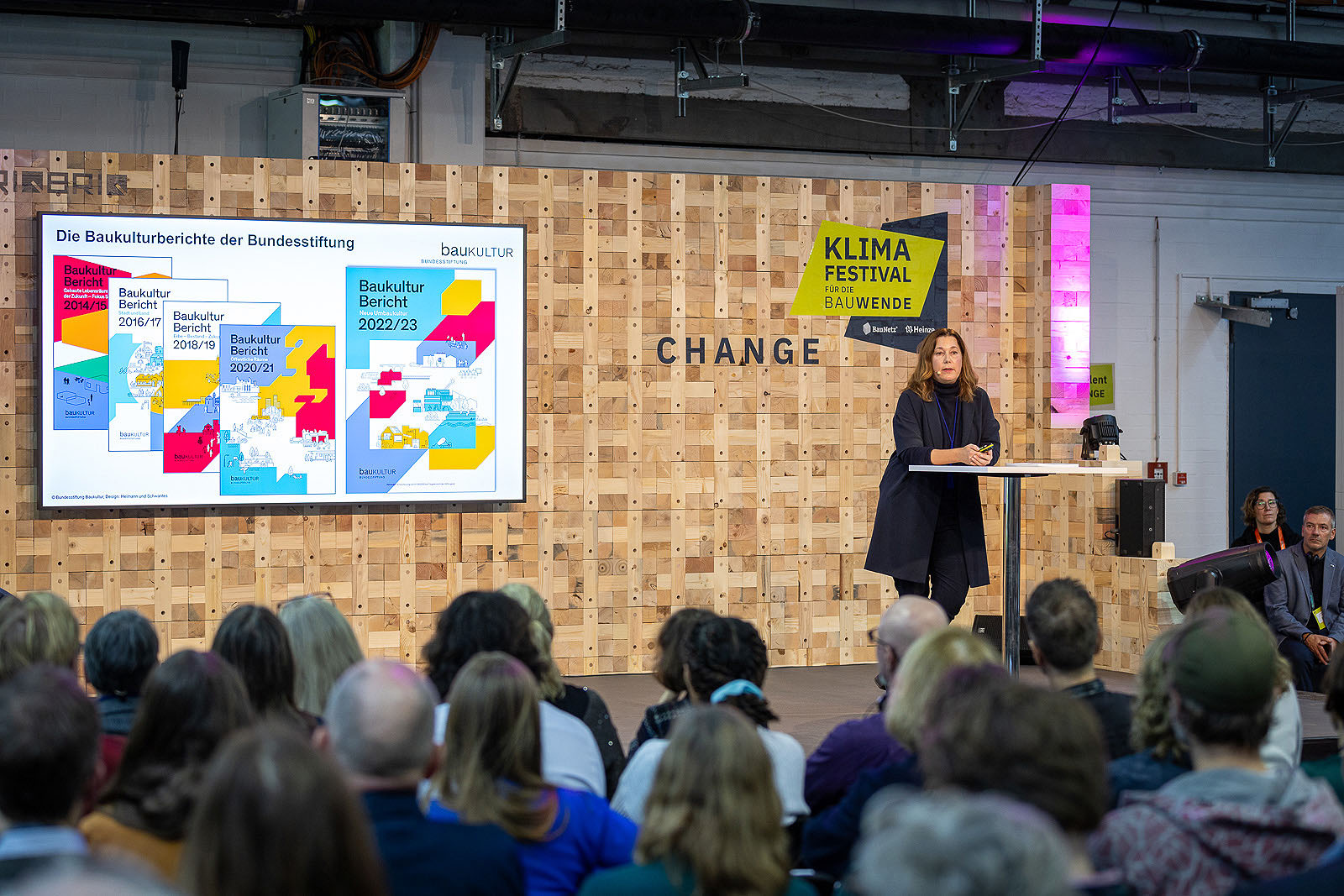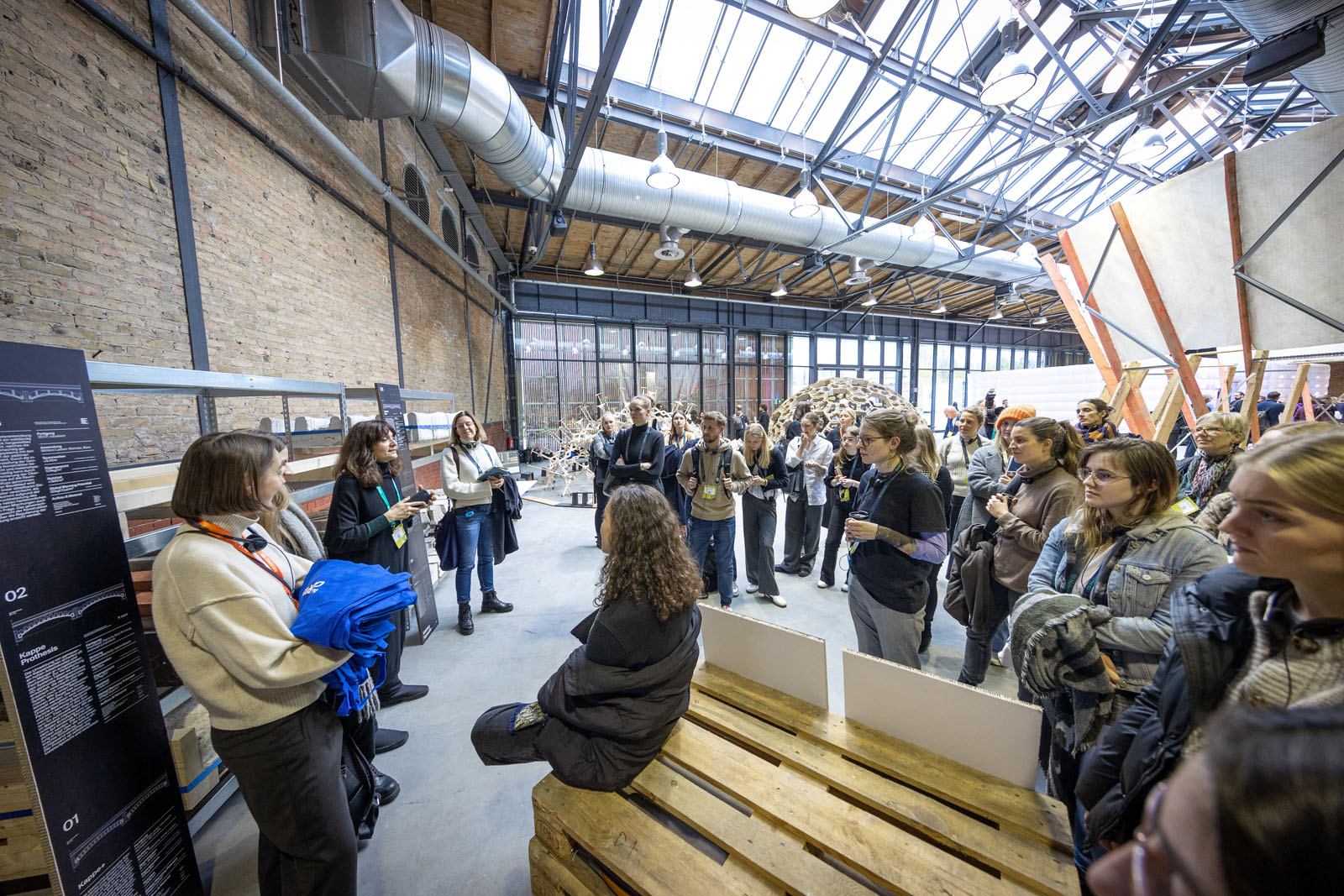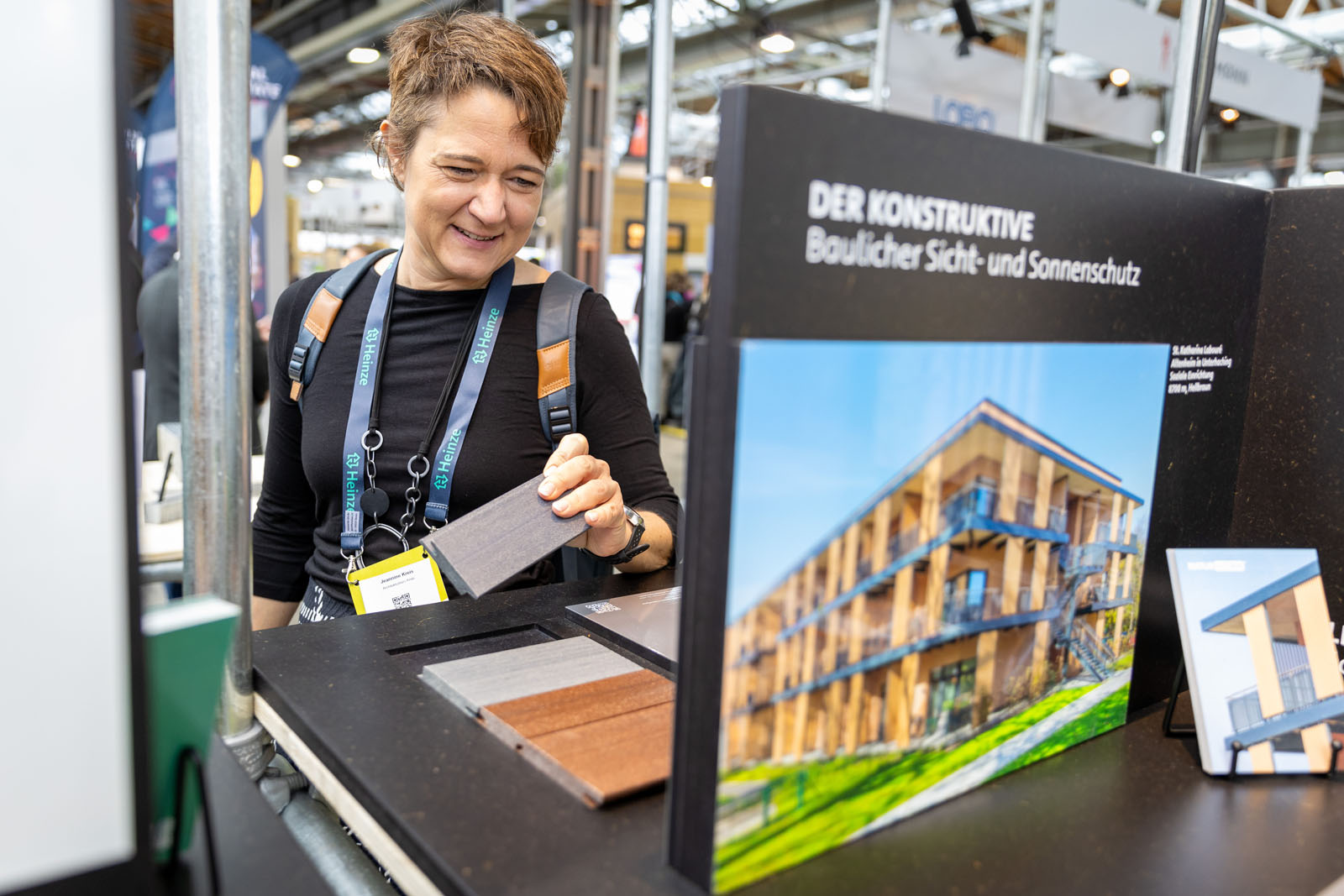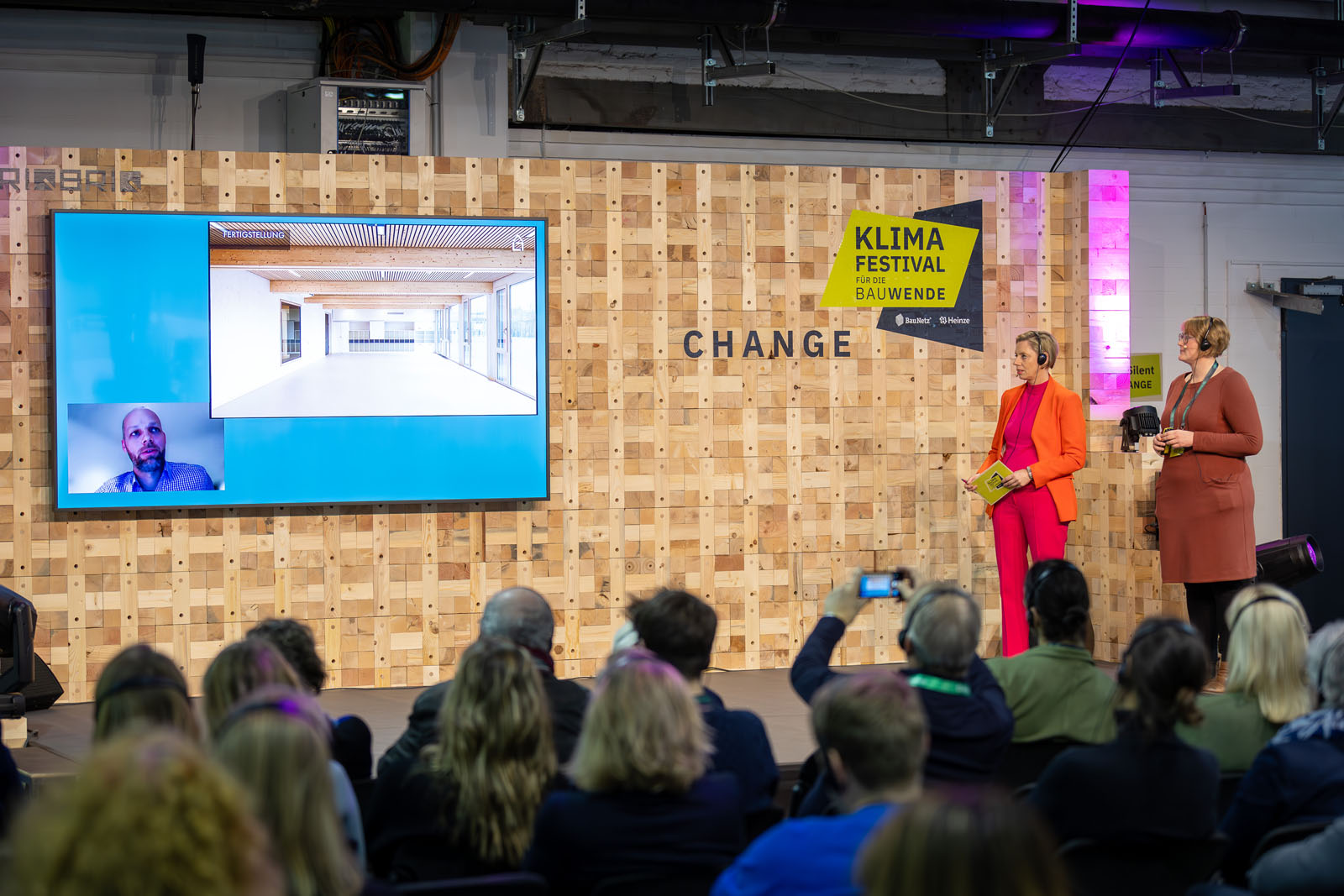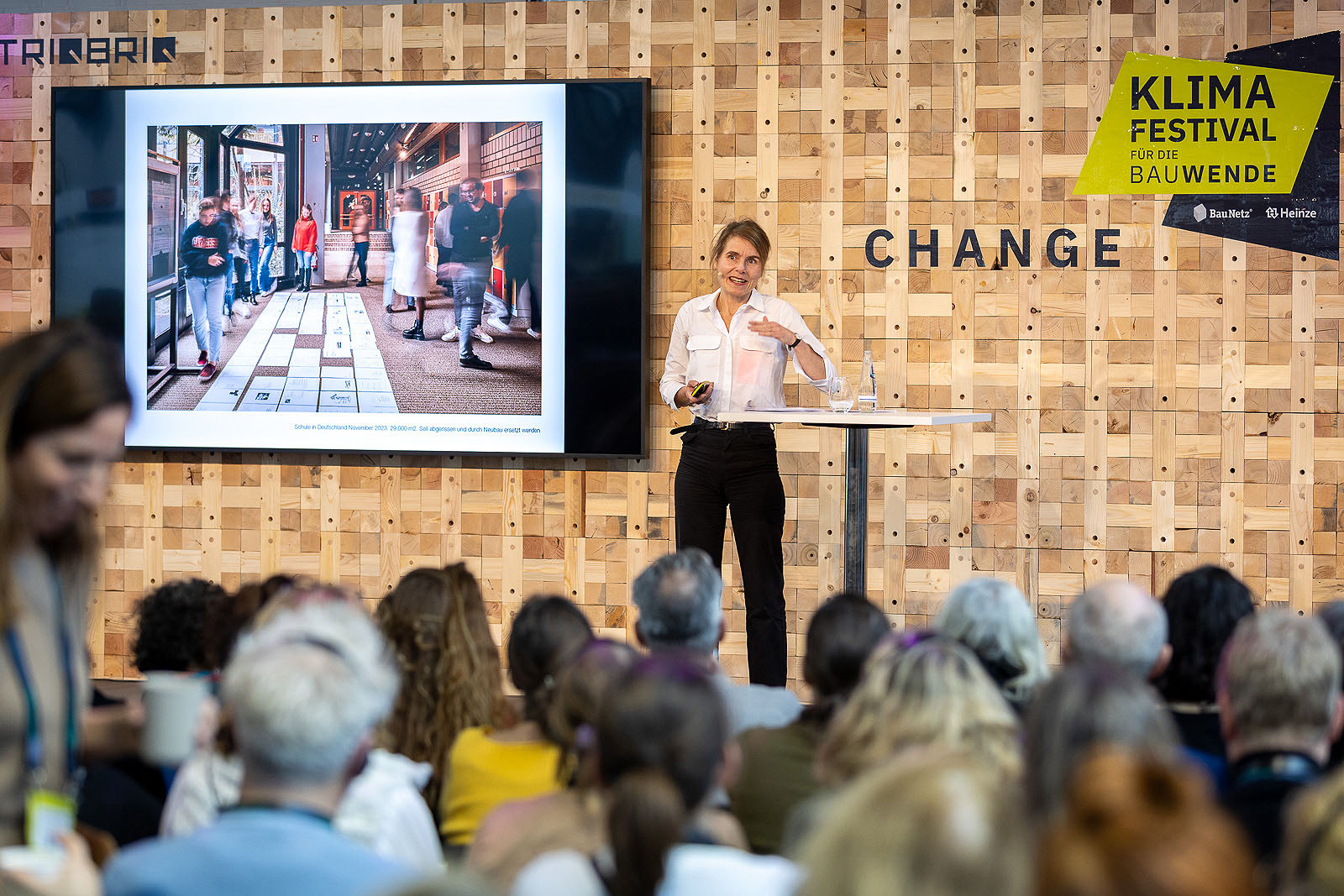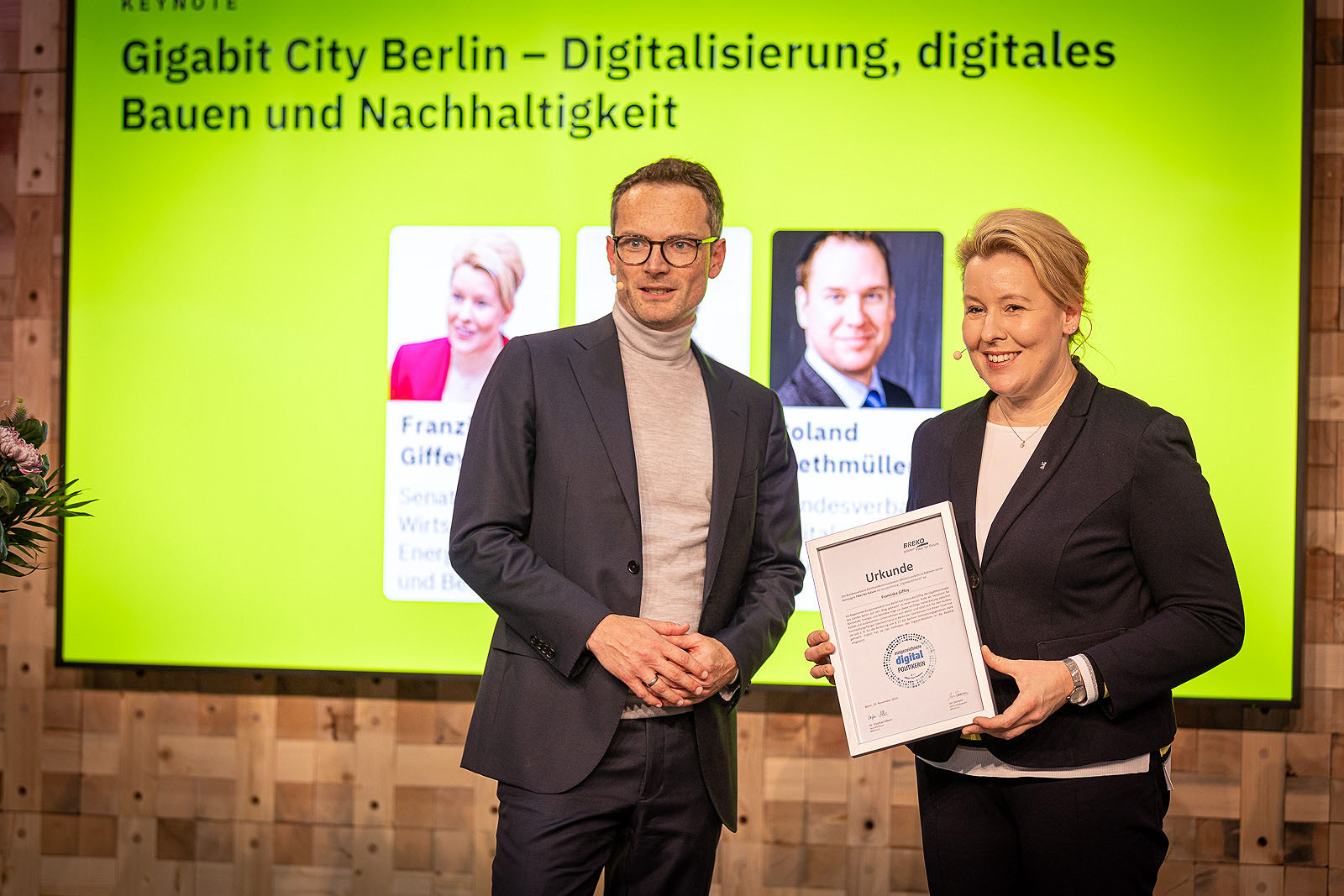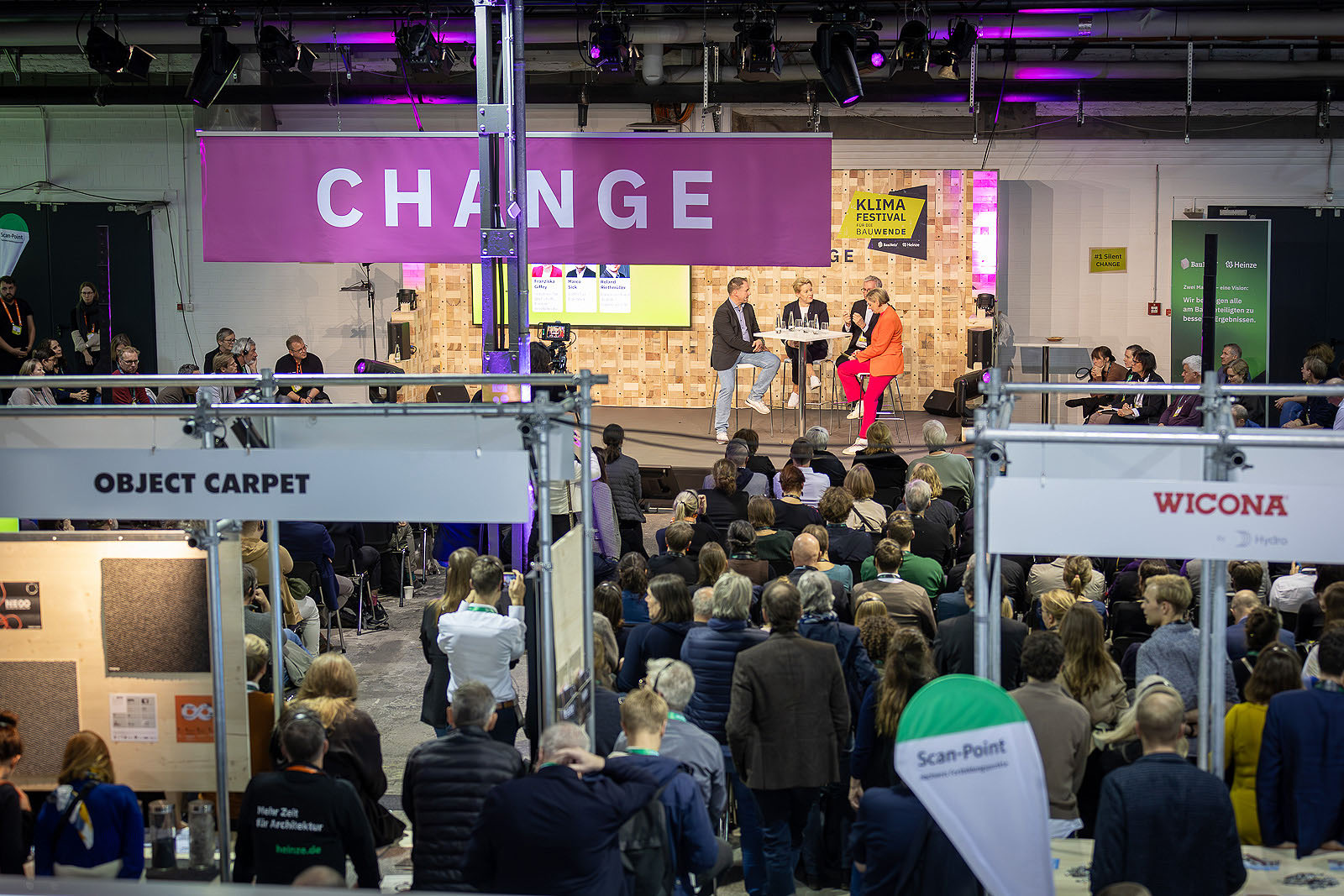
Klimafestival-Referent:innen fordern Umstellung des Bausektors
Insgesamt rund 3500 Gäste auf dem 2. BauNetz Heinze Klimafestival in Berlin

Die Bauwende erfordert ein Zusammenspiel von Politik, Wirtschaft und Gesellschaft
Bestandsbauten erhalten, Abrisse vermeiden und Ressourcen schonen – das waren die Kernbotschaften auf dem diesjährigen Klimafestival für die Bauwende, das in der STATION Berlin stattfand. Referent:innen wie Prof. Dr. Werner Sobek, Dr. Ernst Ulrich von Weizsäcker, Dr. Christine Lemaitre und Stefano Boeri riefen eindringlich dazu auf, den Bausektor umzustellen. Rund 3500 Besucher:innen nahmen insgesamt an beiden Festivaltagen der Veranstaltung teil.
„Wir müssen künftig in Bezug auf die eingesetzten Baustoffe mit weniger Material bauen“, erklärte Prof. Dr. Werner Sobek in seinem Vortrag. Dies bedeute einen „maximalen Einsatz von Sekundärbaustoffen“, um transportbedingte Emissionen zu reduzieren und Ressourcen zu schonen. Denn: „Innerhalb von zwei Generationen hat sich unser Ressourcenverbrauch fast vervierfacht“, legte Sobek dar.
Gemeinsam für die Bauwende
„Mit weniger Materialaufwand könnten wir bessere und nachhaltigere Lösungen hinbekommen“, sagte auch Dr. Christine Lemaitre in ihrem Vortrag „Gemeinsam für die Bauwende“ zur Eröffnung des Klimafestivals. Die Geschäftsführende Vorständin der Deutschen Gesellschaft für Nachhaltiges Bauen (DGNB) sprach sich dafür aus, die derzeit gängigen Systeme zu vereinfachen. Aber: „Nicht jeder will diese Transformation, denn es ist ein gutes Geschäftsmodell, aufwändig zu bauen“. Es gebe eine starke Lobby, die gezielt versuche, das Thema komplex zu halten.
Belinda Rukschcio, Stellvertretende Vorsitzende Bundesstiftung Baukultur, forderte in ihrem Vortrag, dem Thema Bauabfälle mehr Bedeutung zu schenken. „Die Möglichkeiten für die Bauwende in diesem Bereich sind enorm“, so Rukschcio. Der jährlich in Deutschland aufkommende Bauabfall entspreche rechnerisch dem Materialbedarf für circa 422.000 Wohneinheiten. Eine funktionierende Kreislaufwirtschaft könne sich daher positiv auf die gebaute Umwelt auswirken.
In ihrem Vortrag „Ertüchtigung statt Abriss“ sprach sich Theresa Keilhacker, Präsidentin der Architektenkammer Berlin, für den Erhalt von Bestandsgebäuden aus. Insbesondere Kommunen würden es viel zu oft versäumen, sich um diese Bauten zu kümmern: „Für den Erhalt dieser Gebäude müssen Posten in den Haushalten eingeplant werden“, forderte sie. Andernfalls würden diese Immobilien verrotten, und dann bliebe nur noch der klimaschädliche Abriss.

Dr. Ernst Ulrich von Weizsäcker forderte die Etablierung einer „Klimaaußenpolitik“. Europa sei der einzige Kontinent, der den Klimaschutz durch entsprechende Gesetze „einigermaßen ernst“ nehme. Effizientes Wirtschaften im Sinne eines sparsamen Einsatzes von Energie und Ressourcen werde künftig nicht mehr ausreichen, betonte der Umweltwissenschaftler. „Wir müssen konsequent von fossiler auf erneuerbare Energie umsteigen.“
Der italienische Architekt Stefano Boeri zeigte in seinem Vortrag zum Abschluss des Klimafestivals, wie sich Natur und Urbanität durch innovative Architektur vereinen lassen. Sein Konzept des „vertikalen Waldes“ setzt an drei Punkten an: „Städte sind für 75 % des globalen CO2-Ausstoßes verantwortlich“, führte Boeri aus. „Gleichzeitig sind sie die ersten Opfer des Klimawandels, denn bereits 70 % der Städte leiden an den Folgen zum Beispiel durch Überhitzung.“
Durch urbane Begrünung und eine nachhaltige Politik könnten Städte jedoch der wichtigste Motor werden, um den Klimawandel zu bekämpfen. Boeri rechnete vor, dass seine mit Bäumen und Sträuchern begrünten Hochhaus-Komplexe bis zu 30 Tonnen CO2 im Jahr einsparen, die Biodiversität in Städten fördern und Staubpartikel aus der Luft absorbieren würden. Weltweit gibt es bereits zwölf „Vertical Forest“-Towers, 40 weitere seien in Planung, so Boeri. In Deutschland gebe es entsprechende Planungen für den Standort Göttingen.
Copyright:
Fotos: Heinze GmbH, Marcus Jacobs / Offcsreen Oliver Zeipelt
Video: Offscreen


